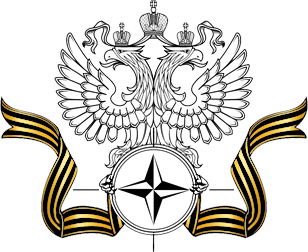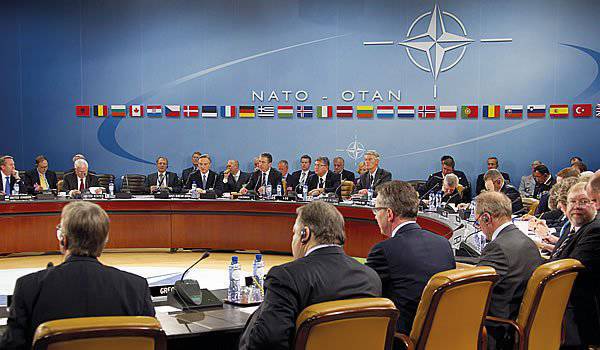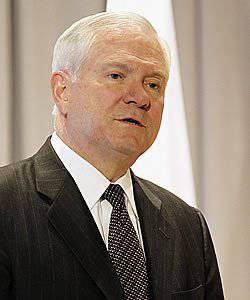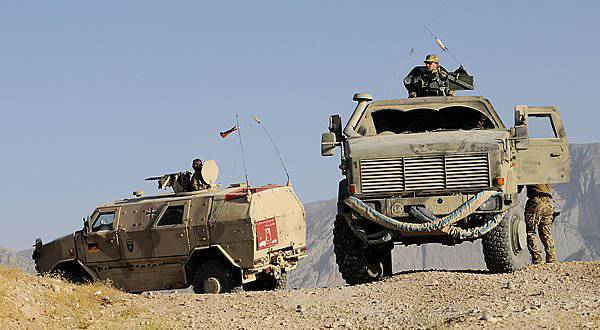The interaction between Russia and the alliance in the future will be limited: Dialogue of the RF-NATO - expert estimates
 After the end of the Cold War, more than twenty years have passed. It would seem that over this rather long period an effective architecture should have emerged, if not global, then a regional security system, at least on the European continent.
After the end of the Cold War, more than twenty years have passed. It would seem that over this rather long period an effective architecture should have emerged, if not global, then a regional security system, at least on the European continent.However, the current state of the military-political situation in the world is largely characterized by uncertainty, with an emerging negative tendency towards its complication and increased tension. The number of armed conflicts is growing, “old” problems are becoming more acute, new challenges and threats are emerging (such as, for example, terrorism, cyber threats, etc.). The competitive struggle between the main world players for the expansion of spheres of influence and access to raw materials is increasing, and military force is increasingly used in international relations. Under these conditions, more than ever, an analysis of the development of the situation in the Euro-Atlantic region, where most of the leading world powers are located and there are many problems, the solution of which depends on Russia's security, is relevant.
Therefore, it is not by chance that experts from around the world are focusing their attention on studying the situation in Euro-Atlantic and studying the security institutions that have been established here. The recent results of expert surveys on this issue provide an excellent opportunity to find out what is more concerned about representatives of expert, political and scientific circles of different countries, to compare their assessments of the current military-political situation and forecasts for the future. In the end, this may help to identify the main trends that will determine the future of regional and global security.

In the Euro-Atlantic region, not only are the leading powers located, but there are also problems that threaten Russia's security.
Within this article, expert surveys are offered for a detailed review, which were conducted during international conferences on Euro-Atlantic security and organized by the Russian Institute for Strategic Studies in 2010-2012, as well as their comparison with the results of a survey conducted in 2012 by authoritative " US think tank - the Atlantic Council - in collaboration with Foreign Policy magazine and the future of the Alliance, which is more concerned. Although the topic of this expert survey (“The Future of NATO”) was narrower than the topics of Russian polls, in reality the nature of the questions shows a high degree of their correlation, which allows for a comparative analysis.
The goal of American and Russian expert surveys is to clarify the positions of the expert community on topical issues of European security, the role of NATO in the modern world, US influence on European security, and the nature and prospects of relations between Russia and the North Atlantic Alliance.
First of all, the opinion of the expert community on the most significant problems of European security at the moment is of interest.
It should be noted that the answers of Russian experts indicate a rather alarming, in their opinion, situation in this area. The most significant they called the problem of military security. Moreover, a number of experts noted that some other problems of European security, in particular problems in the humanitarian sphere, in practice are interrelated with problems of military security, which may lead to the strengthening of so-called “humanitarian interventions”.
Experts consider the problems in the energy sector to be very important (second in importance). According to one of the respondents, “although this problem belongs to the field of cooperation between Russia and the EU, it will gradually, at the“ wish ”of NATO, become a stumbling block in relations between the bloc and the Russian Federation.”
Also quite significant today are the problems in the field of information security. As one expert noted, "information technologies that are constantly being improved can provide any catastrophe."
It is interesting to note that in the course of the survey, American and European experts showed not as alarmist sentiments as their Russian counterparts. So, for example, 70% of foreign experts believe that, despite the emergence and expansion of the spectrum of new challenges and threats to security, today the real threat of a large-scale war in Europe has disappeared, which undoubtedly makes the current situation of NATO member countries much more secure than in the years of the cold war.
Thus, we can state the division of Europe into two parts: the NATO countries and their partners, whose security has strengthened, and the rest of the countries, whose security has not improved at all, including as a result of the retention of the powerful military bloc of the Cold War era.
The overwhelming number of respondents of the survey conducted by the Atlantic Council, as the main goal of NATO, chose the traditional task of collective defense of Europe (74,5%), and 8,5% considered that it is too early to remove the military containment of Russia from the agenda. In this context, the priorities of the Alliance, defined by Western analysts, which include, in addition to collective defense, the tasks of conducting operations outside the Alliance’s traditional area of responsibility and implementing “global peacekeeping” (37 and 24%, respectively) are really very close to the trend of NATO military dimension addressing current security issues. In this regard, it is interesting to note that 90% of American experts believe that NATO should develop not only defensive, but also offensive potential in the field of cyber security.
In general, the opinion of the expert community indicates that the problems of European security at the moment seem to be quite acute, and the Alliance as a powerful military-political organization can have a significant impact (both positive and negative) on their decision. Therefore, of great interest is the vision of experts of the North Atlantic Alliance at the present stage of its development.
 Robert Gates: “The future of the Alliance may turn out to be vague, if not gloomy.”
Robert Gates: “The future of the Alliance may turn out to be vague, if not gloomy.”To the question “How do you see NATO at the moment?” 53% of the polled RISS responded that the Alliance is currently primarily a tool for realizing US national interests (in 2010, this answer was also given by 53% of experts). Comments to confirm this thesis are rather eloquent: “NATO lost its original purpose and remained an instrument of American influence in Europe”; “This is an organization created to cover unipolarity under the guise of multipolarity,” “despite the disagreements that arise in some cases between NATO member countries, the main decisions are made under dictation and to please, first of all, the United States.”
It should be emphasized that the assessment of the role of the United States in the Alliance also occupied a central place in the survey conducted by the Atlantic Council and Foreign Policy magazine. However, the western expert community is characterized by a shift in emphasis. Today, he is more concerned not with the question “What role does the US play in NATO?” (Since there is a consensus that this role will remain decisive in the foreseeable future), but the question “What is the significance of the Alliance for the foreign policy and military strategies of the United States?”
Authoritative Western experts unanimously agreed that NATO should continue to exist, and it makes sense for the United States to keep the Alliance afloat. Moreover, the view was expressed that even if the Alliance were not, it would be worthwhile to invent it. However, the respondents were not so sure when answering the question of whether NATO can adapt to the changing geopolitical and military situation and who will be the main sponsor (and under what conditions) of future operations conducted by the Alliance.
It is interesting to note that the assessments of foreign experts regarding the significance of NATO for the national security of the United States and European security are quite significantly different. On a ten-point scale, the Alliance's value for European security was rated quite high - in 8,5 points, while its importance to the security of the United States - only in 6,5 points. At the same time, 85% of respondents agreed that NATO will continue to occupy an important place in the national security of all member countries. Does this mean that NATO is supposed to be experts not only as a defensive alliance (for Europe), but also as a tool for realizing “offensive” goals for the United States?
In this connection, the opinion of Russian experts on the main tasks of NATO at the present time is of interest. First of all, they (like their Western colleagues) pointed out the traditional task of the Alliance - ensuring the military security of member countries (65% of the surveyed experts set this task first or second in priority). Along with it, according to experts, the task of giving the Alliance global functions for ensuring international security is almost as important (58% of experts assigned this task to the first or second priority position). As one of them noted, “NATO’s actions are nothing but an attempt to replace the UN Security Council and its working body, the Military Staff Committee.” It is noteworthy that 95% of foreign experts (Atlantic Council survey) consider it necessary to expand the functions of NATO outside the traditional area of responsibility. As one expert pointed out, “the whole world is now our area of responsibility.”
According to experts, one of the priorities remains the task of ensuring the economic interests of NATO member countries. Moreover, according to some experts, “as the struggle for resources and sales markets intensifies, economic interests will increasingly prevail in NATO activities, and the bloc will become more and more aggressive.”
Thus, it can be stated that the Alliance is currently actively pursuing a policy of substantially expanding the geography of its presence and taking on the functions of global control.
As for possible differences between the Alliance member countries, compared with 2010, some (albeit small) changes have occurred in the assessments of Russian experts. Two years ago, 26% of respondents believed that NATO is an organization in which the interests and goals of individual member countries diverge significantly, and in the future these differences will intensify, then in 2011, only 21% of experts answered that way. And 22% believe that in the future it is possible to overcome these differences (in 2010, only 16% of experts adhered to this opinion). Thus, the thesis about the “internal instability” of NATO now, although it exists, is not prevalent in the Russian expert community. Here are the various views of experts on this issue: “As the financial and economic crisis develops, the goals of individual countries will diverge, contradictions will escalate, but as a NATO bloc will exist for a long time”; “The divergence of interests and goals between the“ old ”Europe and the United States (ie, the main NATO participants) will increase as the process of moving the center of the geopolitical game and the interests of the United States in the APR accelerates. For Europeans, this game is a stranger. "
It is curious that the problem of internal stability of the Alliance is relevant for foreign analysts. If 38% of respondents consider further expansion of NATO (gradual and deliberate), then, for example, 62% of experts even admit the possibility of reducing Alliance member countries at the expense of "weak links" (32% of those surveyed by "weak link" - candidate for exclusion Greece).
The opinion of the Russian expert community on the internal problems of the Alliance was quite clearly expressed in one of the comments: “NATO is an organization in which the United States largely tries to carry out its agenda, supported by the support of some leading European countries. The organization cannot be called monolithic, but at the same time it is difficult to talk about a significant divergence of interests, since, in all likelihood, individual NATO member countries and the organization as a whole are currently experiencing difficulties in defining these interests and goals. ”
In contrast to the Russian one, the western expert community attaches much less importance to political differences within the Alliance, considering them, apparently, not so significant, but to a greater extent derived from the economic crisis that has swept most European countries. As a result, the focus of foreign experts is focused precisely on the economic problems of the Alliance, as well as the "gap" of opportunities between European allies and the Americans. For example, 70% of the interviewed experts agreed with the well-known statement by former US Secretary of Defense Robert Gates that NATO has a “dim, if not gloomy future,” because European countries do not want to spend the necessary funds on their own defense and organization needs.
However, in their comments the experts stressed that such problems actually accompanied this organization throughout its storiesand the economic crisis only actualized them. The common values and interests of the allies are much more important than any military spending, and thus the question of the need for NATO is not on the agenda today.
The experts noted that NATO’s move beyond its “traditional” responsibility was vividly demonstrated by the operations of the Alliance in Afghanistan and Libya.
Almost 80% of Russian experts surveyed believe that after the planned withdrawal of US and NATO troops from the region, the situation in Afghanistan will be characterized by instability and a large number of permanent hot spots.
Here are expert opinions on this: “The stable situation in this country will not come soon, because as a result of a series of shocks, starting from the end of the last century, the entire economy has been destroyed, and there is no single, efficient governing body”; “And the question is, how will Afghanistan maintain its security system? At the expense of what means (except for drug traffic)? Is Afghanistan able to provide 400 ths. Police and army contingent? And what will they do without the help of NATO? ”
A number of experts (14%) adhere to even more pessimistic assessments. As one of them noted, “the conflict will grow: Pakistan, Tajikistan, Uzbekistan will be involved in it”.
At the same time, no expert chose the suggested answer: “The situation in Afghanistan will be peaceful, stable”.
And the position of NATO experts is far from being so optimistic, as one might have supposed. If, in the opinion of 44% of respondents, the return of terrorist groups (Al-Qaeda) to Afghanistan is unlikely, then 41% of experts believe that this is very likely. The opinion of one of the NATO experts is interesting: “Well, did she (al-Qaeda) go somewhere?”
As for the Alliance's operation in Libya, more than half of Russian experts believe that NATO’s actions will significantly reduce international security. This is evidenced by the comments: “The actions of NATO radically revise international law and will serve as an impetus for the repetition of such scenarios in the future. The closest is in Syria ”; “The operation in Libya showed that the UN cannot serve as a deterrent for NATO”; "Yesterday - Iraq, today - Libya, and then - everywhere."
At the same time, 53% of foreign experts rated the NATO operation in Libya as a model for future Alliance military operations, but 47% did not consider it as such. And it is not by chance that 63% of the surveyed foreign experts apparently oppose the Alliance’s military intervention in Syria. Here is the rationale for one of them: "NATO does not have the necessary resources to conduct such an operation." Moreover, 81% of experts believe that in general the conduct of military operations on the scale of Libyan is currently impossible without decisive American support.
As for the question of a possible expansion of NATO, it is interesting to note here that Western analysts look at this problem in a rather utilitarian and pragmatic way. They believe that today “NATO does not need consumers, but security providers” (of course, meaning not only financial or military contribution, but also geostrategic position, political influence, etc.). Therefore, in the NATO poll among possible candidates for membership in the Alliance, Sweden won a landslide victory (22%). Macedonia took the second place (10%), which only formal disagreements with Greece prevented from becoming a full member of the Union. At the same time, Ukraine and Georgia also gained quite a large number of supporters of their admission to the Alliance - by 9%, however, Australia received the same amount. Only one foreign expert voted for Russia, i.e. about 1,7%.
On the whole, it is worth noting that in Russian polls there also draws attention to a certain decrease in the significance for Russia of NATO and the exit to the first positions on the priority of Ukraine and Georgia. And although it is premature to talk about such a trend (the accuracy of expert assessments does not allow for a reliable ranking of countries in both groups by priority), this moment is, in our opinion, important.
As for Russia-NATO relations in the long term, the Russian expert assessments recognize the most likely option as a “limited partnership on specific issues affecting NATO’s interests.”
At the same time, a slight increase over the period 2010-2012 should be noted. tensions of these relations concerning other less probable (according to Russian experts) development scenarios. Thus, according to experts, the likelihood of a strategic partnership between Russia and NATO has decreased significantly, and, at the same time, the likelihood of confrontation between them has increased.
On the whole, in the Russian expert community there are no head-to-head attitudes about the prospects for the development of relations between Russia and NATO, or apocalyptic ones. Experts believe that the present-day Russia-NATO relations will continue in the longer term, not excluding the possibility of either some deterioration or some improvement - although the latter seems less likely.

NATO operations in Afghanistan and Libya do not contribute to strengthening international security.
Experts believe the option of full integration of Russia into the alliance structures is absolutely unrealizable - the likelihood of this option was even less than in 2010. One expert gave an interesting estimate: “Full integration of Russia into NATO structures will mean Russia's withdrawal to the front China, which will have disastrous consequences for the Russian Federation. "
In this regard, it is interesting to note that, judging by the survey conducted by the Atlantic Council, for Western experts the problems of Russian-NATO relations are generally not key in terms of determining the main directions of development of the Alliance. Because of this, for example, the problem of the deployment of European missile defense systems was not addressed by them, since there is a strong opinion among foreign analysts that such a system would be useful for European security and, therefore, should be created regardless of whether Russia participates or not.
Note that the Russian expert community has no illusions about the possibility of suspending the deployment of this system. This development is assessed by experts as extremely unlikely (the assessment of the probability of such a scenario is 0,28).
The distribution of answers and comments of Western experts to the following question are noteworthy: “Should Russia be allowed to join NATO?”. 50% of respondents said they did not see this as necessary, noting that the Russian Federation itself does not show enough interest in this. 33% believe that this issue can be positively resolved in the future and not now, and only 17% gave a positive answer, noting that this issue cannot be ruled out in principle. It is interesting to emphasize that practically all experts, regardless of the chosen answer, were practically unanimous in their comments that Russia should, in principle, change its foreign and defense policy, which is largely opposite to NATO, develop the institutions of democracy and human rights, strive to comply NATO criteria and standards, fully accept the values and share the interests of the West. But, as one expert pointedly noted, in this case it will not be Russia anymore.
In conclusion, let us dwell on the following main conclusions, which can be drawn from the results of expert surveys conducted.
According to the general opinion of the expert community, military security issues are currently of paramount importance in the European security system compared to such important issues as energy and information security.
Against this background, NATO, according to experts, is a military-political structure focused primarily on the realization of the interests and goals of the United States. Russia should take this moment into account when building up its relations with the Alliance.
The expert community has a strong opinion about NATO’s going beyond its “traditional” responsibility and the Alliance’s desire for global control in almost all regions of the world. At the same time, NATO's operations in Libya and Afghanistan, according to experts, are far from contributing to strengthening international security.
With regard to the deployment of the European missile defense system, experts believe that this process will continue, and Russia should take effective response.
The expert community is not overly optimistic about the prospects for long-term relations between Russia and NATO and believes that they will be rather limited.
Lev Chermenovich ABAEV - Leading Researcher, Department of Defense Policy, Russian Institute for Strategic Studies, Doctor of Technical Sciences.
Sergey Mikhailovich Ermakov - Senior Researcher, Department of Defense Policy, Russian Institute for Strategic Studies.
Information